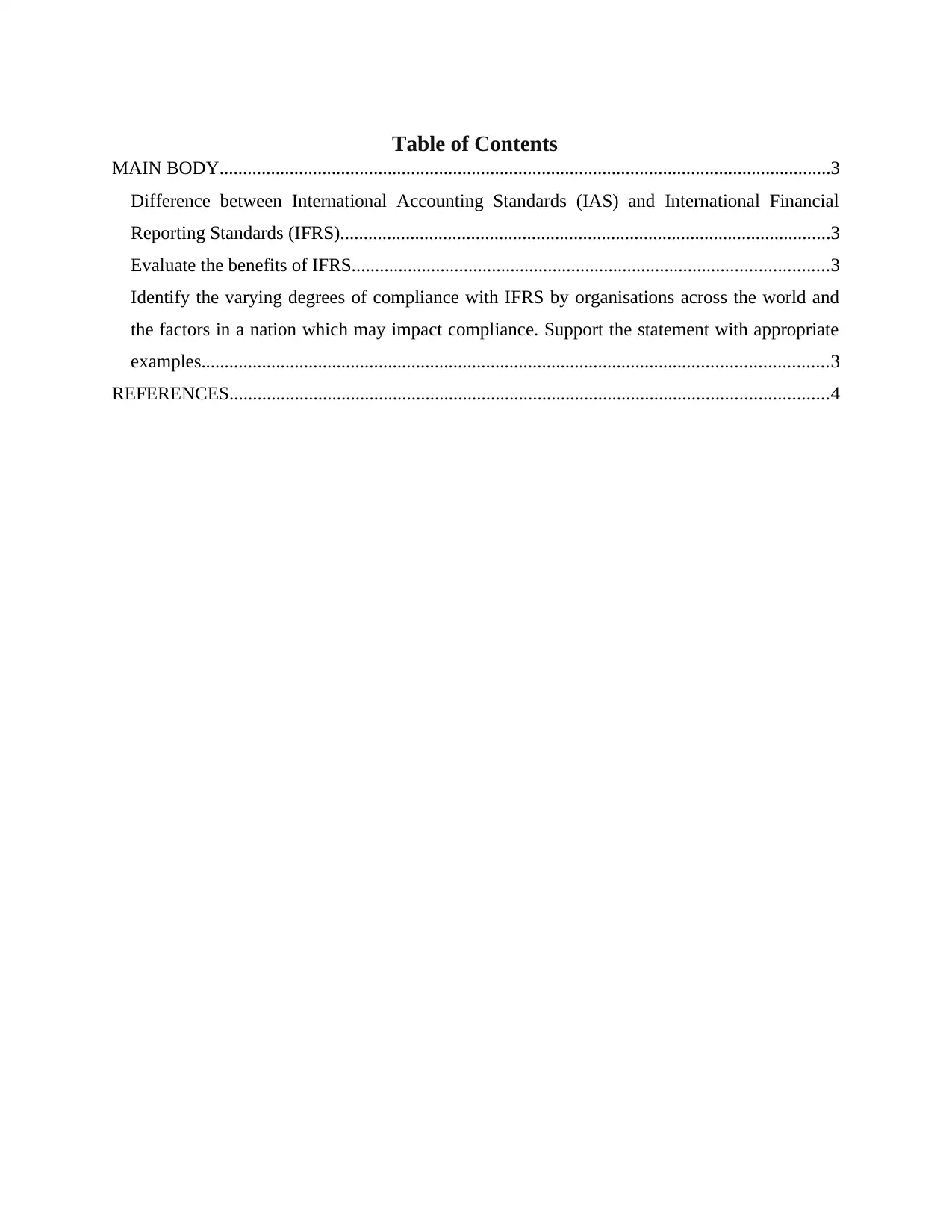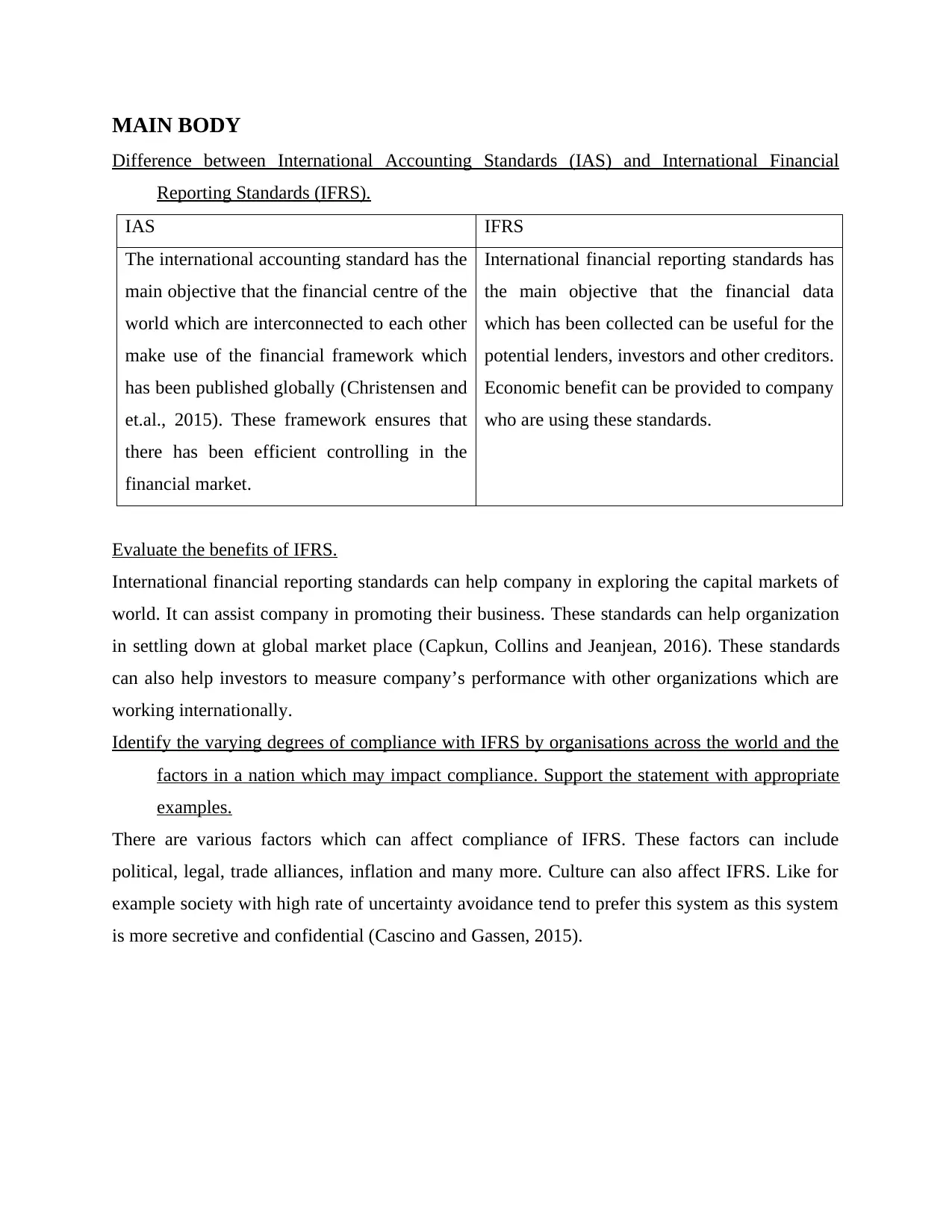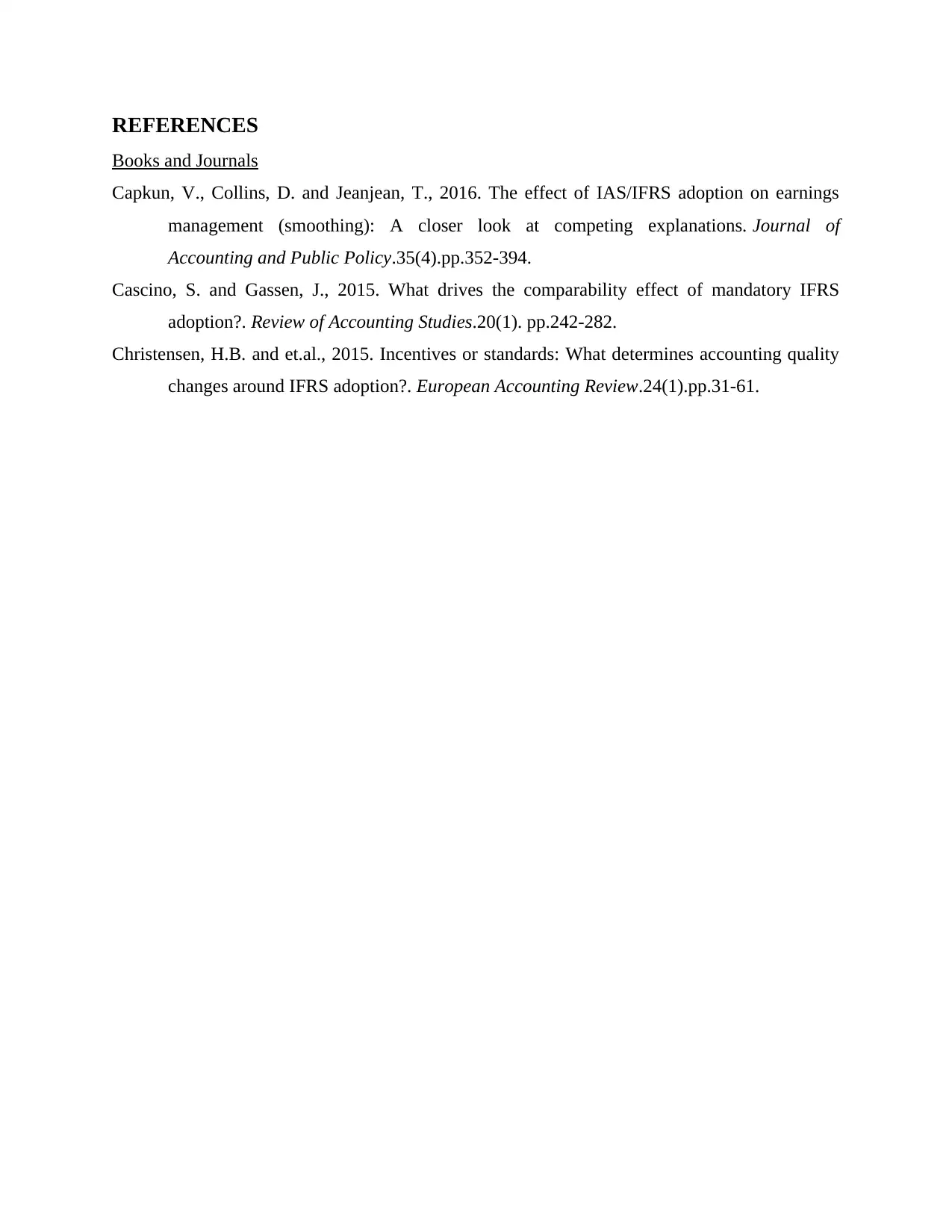Impact of IFRS on Global Financial Reporting and Compliance
VerifiedAdded on 2021/02/19
|6
|476
|69
Report
AI Summary
This report provides a detailed analysis of International Financial Reporting Standards (IFRS) and International Accounting Standards (IAS). It begins by comparing IFRS and IAS, highlighting their key differences and objectives. The report then evaluates the benefits of adopting IFRS, emphasizing its role in accessing global capital markets and facilitating international business operations. Furthermore, it examines the varying degrees of IFRS compliance across different organizations and nations, identifying factors such as political, legal, and cultural influences that impact compliance levels. The report supports its findings with relevant examples and concludes by summarizing the overall impact of IFRS on the global financial landscape, including the implications for investors and businesses operating internationally. The report references academic sources to support its arguments.
1 out of 6













![[object Object]](/_next/static/media/star-bottom.7253800d.svg)